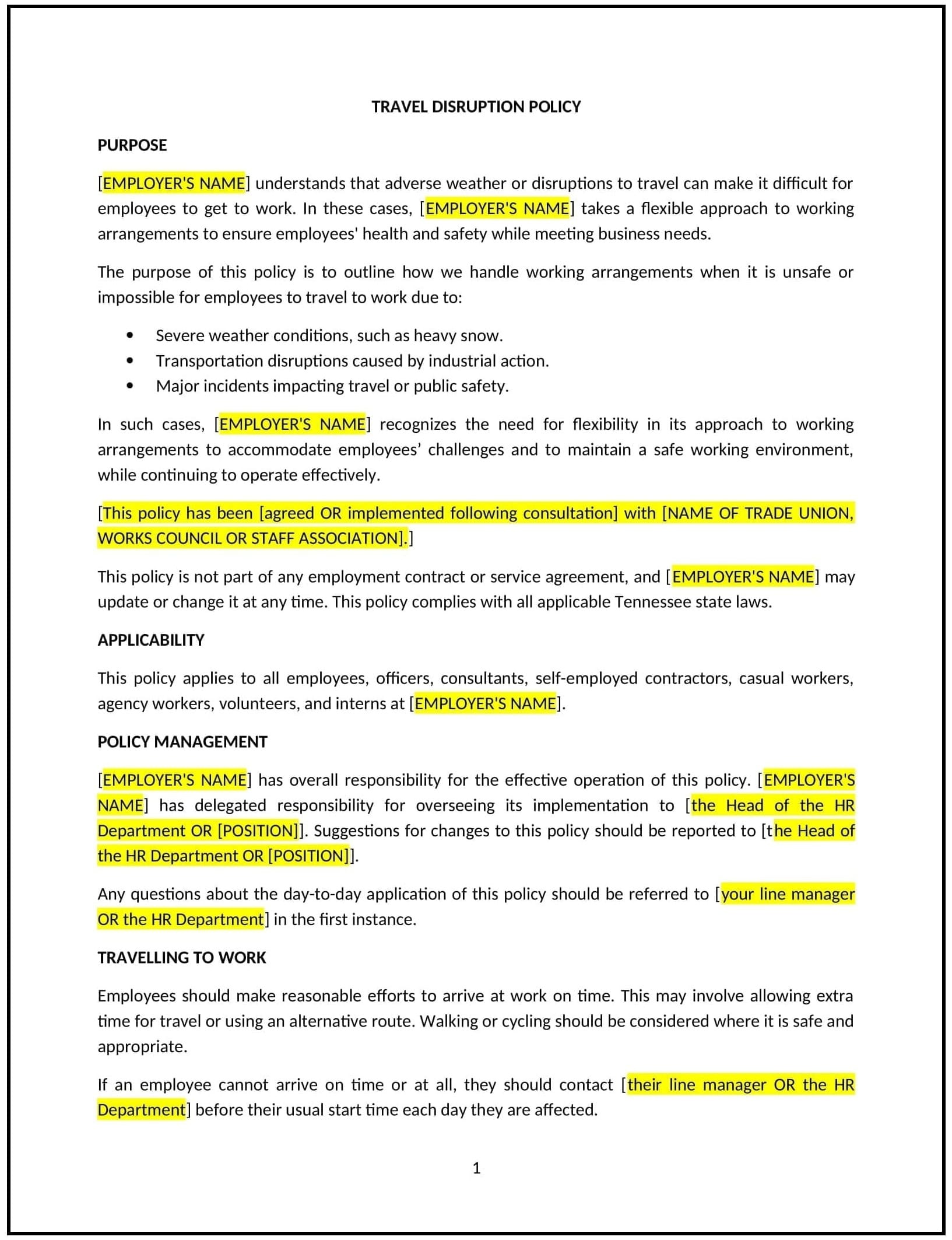Travel disruption policy (Tennessee): Free template
Got contracts to review? While you're here for policies, let Cobrief make contract review effortless—start your free review now.

Customize this template for free
Travel disruption policy (Tennessee)
This travel disruption policy is designed to help Tennessee businesses establish guidelines for managing disruptions during business travel, such as flight cancellations, natural disasters, or medical emergencies. It outlines procedures for ensuring employee safety, minimizing disruptions, and maintaining business continuity.
By adopting this policy, businesses can protect employees, reduce risks, and align with best practices for travel management.
How to use this travel disruption policy (Tennessee)
- Define travel disruptions: Clarify what constitutes a travel disruption, such as flight delays, severe weather, or health emergencies.
- Set response procedures: Provide steps for employees to follow during a disruption, such as contacting the business or rebooking travel.
- Address safety measures: Outline guidelines for ensuring employee safety, such as emergency contacts or travel insurance.
- Train employees: Educate staff on the policy and their responsibilities during travel disruptions.
- Review and update: Assess the policy annually to ensure it aligns with evolving business needs and travel risks.
Benefits of using this travel disruption policy (Tennessee)
This policy offers several advantages for Tennessee businesses:
- Protects employees: Ensures employees are prepared and supported during travel disruptions.
- Minimizes disruptions: Reduces downtime and helps businesses recover operations quickly.
- Enhances safety: Provides clear guidelines for handling emergencies and ensuring employee well-being.
- Reduces risks: Prepares businesses to respond to unexpected travel disruptions effectively.
- Aligns with best practices: Supports a structured approach to managing travel disruptions.
Tips for using this travel disruption policy (Tennessee)
- Communicate the policy: Share the policy with employees and include it in the employee handbook.
- Provide training: Educate staff on the policy and their responsibilities during travel disruptions.
- Monitor compliance: Regularly review travel arrangements and disruption responses to ensure adherence.
- Address issues promptly: Take corrective action if travel disruptions are mishandled or unresolved.
- Update regularly: Assess the policy annually to ensure it aligns with evolving business needs.